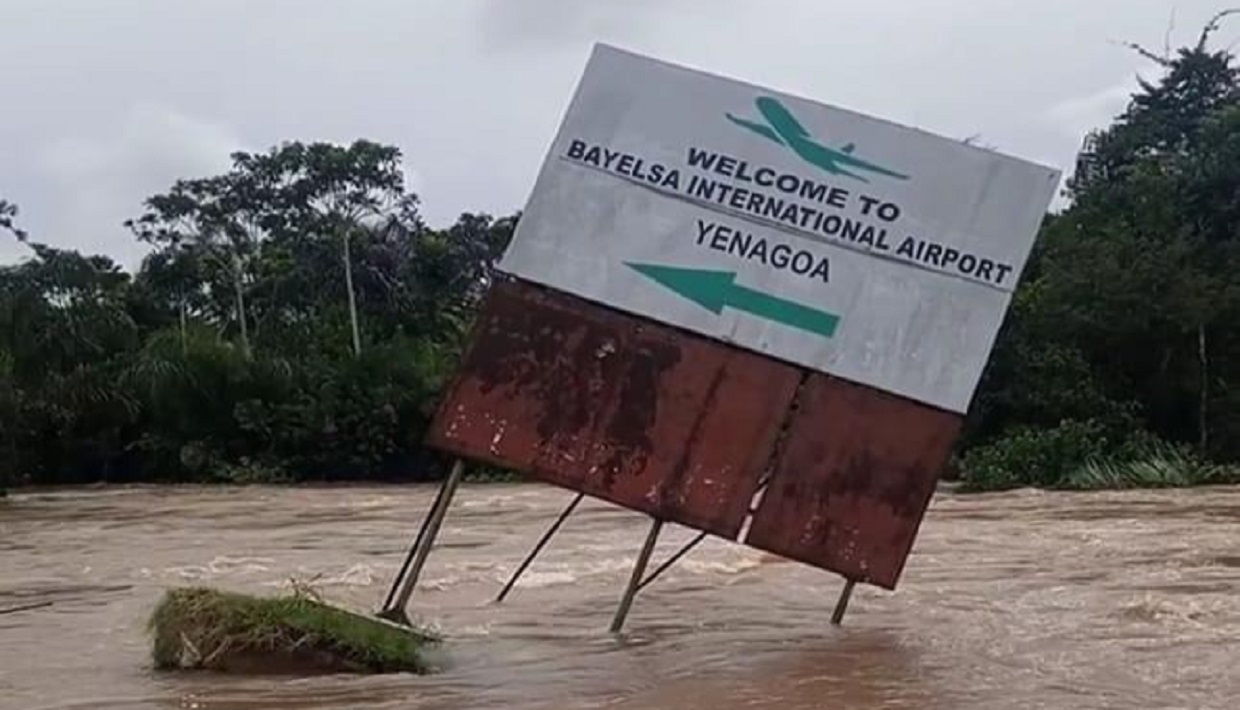As predicted by the Nigerian Meteorological Agency (NiMet), the recent severe flooding that continues to hit several states in Nigeria has left unimaginable devastation in its wake. The Minister of Humanitarian Affairs, Disaster Management and Social Development, Sadiya Umar Farouq disclosed in a press briefing that 2,504,095 persons were affected. A breakdown from her, indicated that those displaced nationwide were 1,302,589; the number of those injured was 2,407 and the number of deaths was 603.
According to her as at last count the number of houses that were partially damaged was 121,318; the number of houses that were damaged was 82,053; farmlands that are partially damaged were 108,392 hectares, while damaged farmlands were 332,327 hectares.
From available records provided by the Ministry, 31 states in Nigeria have experienced the 2022 flood with states such as Nasarawa, Sokoto, Benue, Jigawa, Taraba, Bauchi, Kogi, Anambra, Kebbi, Bayelsa, Rivers and Delta among the worst hit.
One of the farmlands destroyed in Nasarawa was the $20 million worth 4,400 hectares of rice farmland owned by Olam Nigeria Limited. Sadly, Vice President of the company, Ade Adefeko in a television interview, has dropped the grave hint that due to the massive destruction to its crops and infrastructure, the price of rice is likely to go up astronomically by December this year. It is instructive to mention that Olam is responsible for 25% supplies of rice in Nigeria. This terrifying prospect coupled with the food inflation which according to the National Bureau of Statistics is at 23.12% captures the dire situation confronting Nigerians.
The tragic event of the latest flooding is heartrending at a time Nigerians continue to pay heavy price due rampant insecurity, crushing poverty and general neglect by the government at all levels. More sombre is that lessons are hardly learnt from catastrophic events such as this. This failure to anticipate problems is a reflection of the paucity of ideas from our political leadership, a destructive situation at par with natural disaster.
In 2012, when a similar flood disaster ravaged the country, the National Emergency Management Agency (NEMA) stated that it killed 363 people and 18,282 people were injured. It estimated the total cost of losses to be in the region of N2.6 trillion. Shockingly, 10 years later history has repeated itself with far reaching and devastating consequences.
The National Association of Seadogs, Pyrates Confraternity condoles with all victims of flood across the country. However, we are extremely saddened that successive administrations have failed to take the right steps to arrest these predictable tragedies.
In several advanced notices issued by NiMET, NEMA and Nigeria Hydrological Services Agency (NIHSA), the government at all levels and Nigerians were warned about the impending flood. NIHSA as far back as September 13th warned about release of excess water from Largo Dam in northern Cameroon which contributed in no measure to the severe flooding.
Completed in 1982, the Largo Dam was supposed to have been complemented by the Dasin Hausa Dam in present day Adamawa state. It was to be a holding dam to the excess water released from the Largo Dam, generate 300 megawatts of electricity and help to irrigate hectares of farmlands. 40 years after it was conceived, the Dasin Hausa Dam remains a pipe dream.
We consider it grossly irresponsible on the part of successive administrations that have unconscionably paid scant regard to this project and left millions of our compatriots at the mercy of yearly flooding. It is leadership short-sightedness of unforgivable proportion; even more sadly so for its direct devastating impact on lives and livelihoods. Not even the timely warning from the government of Cameroon about the impending deluge from the Largo Dam could arouse the Nigerian authorities at all levels to action.
Other than the Largo Dam warning by NIHSA, NEMA Director- General,Mustapha Ahmed in a press briefing held on September 19 stated that the flooding would be worsened by the overflow of the Kainji,Jebba and Shiriro Dams.Rather than be prompted into urgent action by these warnings, government at all levels treated them with the typical lethargic and careless attitude which is a hallmark of Nigeria’s public service.
We urged the Federal Government as immediate measures to declare a state of emergency on flood disaster in heavily impacted states. It should deploy military and paramilitary formations and relevant disaster management agencies to evacuate people still in flood prone areas especially in Anambra, Delta, Cross River, Rivers and Bayelsa states, settle them in safe camps and ensure that they live in dignity.
News that over 1.4 million people have been displaced and living in harsh conditions in various Internally Displaced Persons (IDPs) camps across affected states is terribly worrisome. The Federal Government and respective states have a duty of providing all displaced persons with shelter, adequate medical supplies, consumables and clean water to ameliorate their living conditions. They must not be abandoned to their fate.
The frightening warning by Minister Umar Farouq that these states are still at “risk of experiencing floods till the end of November” should serve as a wakeup call for preventive and remediation efforts to commence immediately. This should be treated with a sense of utmost urgency to avoid further loss of lives and property.
Now is not the time for hollow rhetoric and insipid statements that has since become the trademark of the current administration at times of national disaster. Unfortunately, the issue of the Dasin Hausa Dam should have been a headline topic at the just concluded Ministerial Retreat with a firm action plan to set the ball rolling for its construction especially now that the administration is taking stock as it approaches the twilight of its tenure. The Buhari administration owes Nigerians the duty to commence work on the Dam.
The onus is on Nigerians to ensure whoever is seeking their votes for the highest office in the land must pledge his sincere commitment to completing the project in the shortest possible time. This is election season, and voters (especially in the flood-ravaged zones) have a golden opportunity and duty to extract these commitments from politicians as they canvass for their votes.
We implore the Federal Government to ensure the timely implementation of recommendations from the technical stakeholders committee to be convened after the visit of a Federal Government delegation to Cameroon in November as part of temporary measures to mitigate the flood. The recommendations should not be allowed to gather dust like the litany of recommendations from similar ventures in the past.
It has also become imperative for the Federal Government to see to the regular dredging of the River Niger and Benue using the sand for sandbanks and beaches across the length to improve River flow. In addition, there is a need to initiate a robust integrated River basin management for effective flood risk reduction.
Climate Change is a reality and the governments in Nigeria must wake up to this reality. The various state governments responsible for land allocation must henceforth desist from the dangerous policy of allocating lands for building in floodplains and flood prone areas. Many of the states that suffered flooding also have their topography distorted from indiscriminate building on natural canals and unchecked dumping of refuse into water channels and drainage systems. It is no longer enough to send large delegations to every Climate Change conference in foreign capitals without the commensurate political will to dutifully implement recommendations from such parley. The government must give the recently inaugurated National Council on Climate Change all necessary support it requires to succeed particularly in the implementation of the Climate Change Act of 2021.
We encourage citizens to become more active and vocal in governance issues by demanding accountability from their various state governments over the use of ecological funds. Borrowing the flood control methods adopted by Amsterdam in the Netherlands, Singapore and Copenhagen in Denmark are also veritable options for the government. Flooding prevention has become a collective responsibility; this disaster must not be allowed to befall Nigerians again.
Abiola Owoaje
NAS Capoon
Abuja




